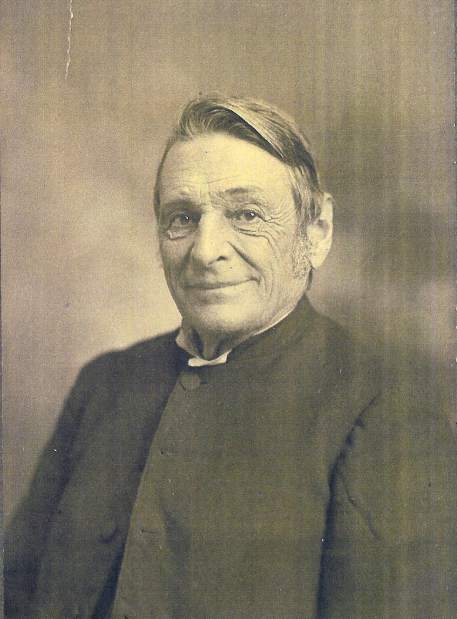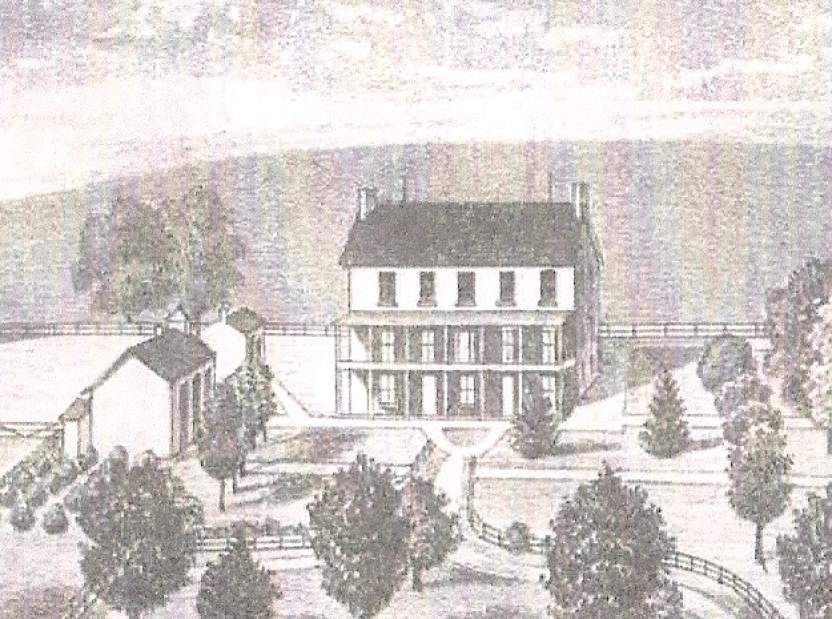Scottdale's Jacob Loucks story detailed
Editor's note: Over the next several weeks (when space allows) the Independent-Observer will present the story of the Loucks family, as part of the Days Gone By column. In this week's edition, the column presents the story of Jacob Stauffer Loucks.
LOUCKS. Loucks Park, Loucks Avenue, Loucks Lane. Is there a resident of Scottdale not familiar with the name and how to pronounce it? Perhaps.
But where did the name come from? A good many citizens will tell you, should you ask, that it is the name of the family on whose farm Scottdale was built 140 years ago.
Others might point out that there were two farms — Peter owned the one north of Pittsburgh Street and his brother Jacob the one to the south.
They might add that Peter's house is at the northwest corner of Loucks Park and Jacob's is set back from Broadway at Walnut Avenue and that these two home are Scottdale's oldest structures.
A very few folk might even elaborate by saying the original Peter Loucks arrived by covered wagon in 1800 as part of the Overholt caravan from Bucks County and settled here. This Peter left his farm to his son Martin, father of the Jacob and Peter referred to.
All the foregoing information appears in local newspaper features with some regularity.
The sketches about the Loucks family were written to give the reader a deeper look into “the rest of the story.” They have been created from sometimes contradictory family lore and written resources, all passed through the personal filter of the author.
Jacob
Jacob Stauffer Loucks was the second child and first son born (1829) to the Rev. Martin and Nancy Stauffer Loucks.
He followed in his father's footsteps and became a prosperous farmer and faithful member of the Mennonite church.
He and his mother helped establish and revitalize the Mennonite church in Scottdale when the membership at Alverton had dwindled to a handful.
His son Aaron, of whom he was very proud, became an ordained minister and also a founder of the Mennonite Publishing House which became a major industry in Scottdale.
Jacob gave land for both the church and the Publishing House. Of Rev. Martin's eight children, only Jacob and sister Catherine remained Mennonite.
At age 23 Jacob married Mary Saylor, a young woman from Somerset County who was employed as a domestic at his Stauffer grandparents' home.
This match was frowned upon by the Loucks family but Jacob prevailed. They raised nine children – seven of them sons.
All these children contribute to the fact that in the 1927 Scottdale Directory only two other surnames have more entries than LOUCKS: the Millers, with a considerable margin, and the Stoners — the run-away winners.
In the current Scottdale phone book, there are only three Loucks numbers listed.
The Scottdale Anniversary Book for 1949 has a photo of the Jacob Loucks farmhouse with the date 1853 below it.
This home, at Walnut and Broadway, the second oldest in what is today Scottdale, was probably once very similar to that of Jacob's parents (1835).
Both houses, over a century and a half, have undergone considerable remodeling and at first glance now seem quite distinct.
Jacob's house most likely dates from around 1860, for Jacob would hardly have built a home for his family at the time of his marriage. The house at 527 N. Chestnut then predates the Walnut Street house by about 25 years.
By 1868 Jacob had a full deed to his farm, having entirely paid off the purchase price.
Father Martin did not “give” Jacob, or any of his sons, a farm as is so often stated.
He provided each with the opportunity to work the land on shares until he was able to acquire full ownership for himself.
Jacob not only excelled at farming, but he was able to transition from his pre-industrial agricultural childhood to capitalistic ventures and opportunities that the changing times made possible.
He and his brother Peter signed the original petition requesting borough status for the village of Fountain Mills.
The two initially laid out a couple of dozen building lots for business and residences but within a year, when the Pennsylvania Railroad arrived, they foresaw a new future and hired an engineer to lay out the plan for a town that would grow where their two farms met (Pittsburgh Street).
The two brothers established the first planning mill in Scottdale, and both later invested in banking, manufacturing, and other enterprises.
Jacob also engaged in grain storage and shipping, and with Albert Keister, operated a flour mill on Broadway at Mulberry Street (part of which still stands).
Their advertising in 1892 read Wholesale and Retail Dealers in Hay, Straw, Grain, Oil Meal, Field Seeds, Salt, & Mill Feed.
Just south of the mill, Jacob also owned a blacksmithing shop. His grandson, Wendell, remembers taking their horses there to be shod.
Jacob was a major figure in the public and economic life of the town and very much in step with the times.
Although early on brothers Jacob and Peter collaborated in business endeavors, the two later had a falling out.
Grandson Wendell Loucks thought it might have stemmed from Jacob's investment in the First National Bank — a rival to Peter's Scottdale Bank. They did not speak for many years.
When Peter felt the end might be near he summoned Jake for a reconciliation. But with a caveat: “If I get well and don't die, everything is the same as before.”
Wendell recalled, “When I grew up it always seemed a bit strange to me that there was very little fraternizing between the families of these brothers.
“Perhaps the bank affair was part of the answer, but I suspect the greatest differences lie in the fact that Jacob families were Mennonite and very conservative and perhaps not as aggressive, while Peter's family was of another faith, less conservative and more aggressive.”
Jacob Stauffer Loucks died in 1916 at the age of 87.
Days Gone By runs periodically in the Indepedent-Observer.


